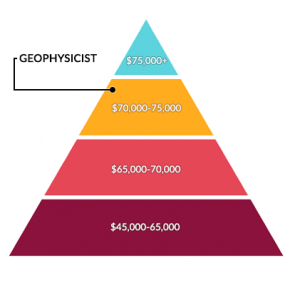All Categories
Featured
Table of Contents
Geophysicists in Darlington Aus 2022
This work is increasingly contracted out, so consultancies provide another source of work. Consultancy companies differ in size, from extremely little business to big multinationals. Some consultancies are quite specialised in utilizing particular geophysical methods or working in particular areas, while others offer a more varied series of services to their customers.
The extraction of gas from garbage dump websites is another area of work and this may grow in the future. Expedition business might undertake work for building firms, water companies, mining business and environmental firms, so geophysicists may be employed in any of these settings. Other employers consist of: geological surveysgovernment bodies and agenciesuniversities and research study institutes.


Vacancies might be noted in the oil and gas sector press. Recruitment is affected by oil price variations and the level of competitors for positions differs depending on this. Professions Days, which cover the complete range of geoscience professions and are generally gone to by a number of key industry employers, are run by The Geological Society.
What Would I Be Doing As A Geophysicist? in Kallaroo Aus 2020
Some of the big oil and gas companies provide a complete two-year structured training program across the breadth of geophysics, including the opportunity to experience operate in various groups prior to specialising in one area. Your training may include deal with: existing wellsmagnetic and gravitational possible field information analysisresearchrock analysis. It's more normal for your preliminary training to be supplied on the task.

There may be a probationary duration during which you work along with a knowledgeable associate. Competency-based appraisals happen regularly in the majority of companies. In smaller companies, and for scholastic posts, there is unlikely to be any formal training - you'll be expected to start work straightaway and get skills as you go along.
If you work for a smaller sized business, you might discover that you require to take responsibility for setting up and funding your own development and training. If you have a geology degree, subscription of The Geological Society can be useful for networking and for maintaining to date with the industry.
Geophysics in Hamersley Western Australia 2021
You might also discover it helpful to sign up with the PESGB (The Petroleum Exploration Society of Great Britain, which has a geophysics special interest group. After a probationary duration, and once you have actually gained some experience, you could advance to senior geophysicist, then team leader and after that into a senior role in management.
The ease of movement between roles depends upon the company structure. Study at Masters or Ph, D level in a subject associated to geophysics or geosciences might assist with your career advancement and progression. The employment market within the oil and gas industry is very based on cost and this may impact your opportunities for career development.
For skilled geophysicists, freelance consultancy provides an excellent path for profession advancement. As a geophysicist, you're most likely to have numerous tasks throughout your working life.
5 Surface Geophysics in Palmyra Aus 2021
From geophysics, it's possible to concentrate on seismology (finishing additional training to become a seismic interpreter) or to move into associated areas such as engineering geology or hazard prediction.
Deciding what to study in college is a tough choice. Even if you understand that your field of interest depends on science, what program of study is best for you? If you make the choice to major in physical and life sciences and pursue a career as a geophysicist, you're preparing for an exciting and lucrative occupation.
The very first step to accomplishing your goal of becoming a geophysicist is earning a degree. Even for entry-level positions in the field of geoscience, you'll need a bachelor's degree (a geophysicist college degree) from an accredited college or university. Some research positions need candidates to hold master's degrees and even Ph.
Geophysical Survey Flashcards in Mullaloo Western Australia 2021
Doctoral degrees are especially essential if you prepare to teach at a four-year institution. Geophysicists use physics ideas and methods to study the gravitational, magnetic, and electric fields of the earth. This enhances researchers' understanding of both the planet's interior core and its surface area. Geophysicists must be able to: evaluate rocks, pictures, and other pieces of information carry out research study both in the field and in labs create maps and charts of their findings write reports To achieve all this, trainees require a specialized education for geophysicist professions.
As stated above, you'll need a bachelor's degree in geoscience or an associated discipline, such as a physical science or a natural science, to land an entry-level job. Trainees can also prepare by majoring in topics like: Biology Chemistry Computer science Engineering Mathematics Physics The above geophysicist majors provide a more generalized method to a single scientific discipline, however a lot of programs require students to take one or more geology course.
Latest Posts
Geophysical Survey - Salisbury Archaeology in South Guildford Aus 2021
Geophysical Survey in Yangebup Aus 2022
Working As A Geophysicist And Oceanographer In Canada in Singleton Aus 2022